Director: Yang Woo-Seok
Cast: Jung Woo-Sung, Kwak Do-Won, Kim Kap-Soo, im Eui-Sung, Lee Kyoung-Young, Jo Woo-Jin, Park Eun-Hye, Ahn Mi-Na, Won Jin-A, Park Sun-Young
Running Time: 139 min.
By Paul Bramhall
With improving relations between South and North Korea, the theme of mutual understanding between the divided nation has also begun to be reflected in the South’s cinematic output in recent years. Movies like Confidential Assignment and The Spy Gone North, as different as they may be, both place friendship between characters from the South and North as their central themes. We’re certainly living in different times from the days of Shiri, and that’s not a bad thing by any means. The latest production to throw a pair of characters from the opposing sides together comes in the form of Steel Rain which, apart from having the coolest title of 2017 (yes, cooler than Bleeding Steel), is also the latest from director Yang Woo-seok.
Woo-seok experienced resounding success with his 2013 debut, the Song Kang-ho starring political thriller The Attorney, and Steel Rain marks his sophomore feature. Like many Korean movies of recent years, it’s adapted from a webtoon (Korean online comics), however what makes this particular entry unique, is that Woo-seok is adapting from his own 2011 webtoon, which he created before channelling his creative energies into the film industry. The question of why, out of the hundreds of webtoons out there, one from 2011 would be chosen to adapt 6 years later, is an understandable one, but one that has a good answer.
Using a the plot device of a coup d’état in the North, a former North Korean agent, played by Jung Woo-sung (The Divine Move) is recruited to go under the radar by the regime to assassinate the rogue general responsible. However it turns out the general is one step ahead, and soon Woo-sung finds himself in the middle of an attempt on the North Korean leader’s life, taking place at the Kaseong Industrial Complex close to the border. As chaos descends amongst the bombing and gunfire, Woo-sung manages to cross into South Korea with both the injured ‘Number 1’ (clearly Kim Jong-un, but he’s never mentioned by name, and you never see his face), and two girls that were in attendance to greet the Dear Leader. By chance, he runs into the South’s Foreign Affairs Chief, played by Kwak Do-won (The Wailing), and together they reluctantly team up to prevent the breakout of a nuclear war between the opposing sides.
While the story may seem straightforward, Woo-seok uses the setup to tap into the very real tensions that a certain U.S. president has been causing on the Korean peninsula in recent times. With threats of hitting the nuclear button (regardless of how big it is), insults being freely exchanged, and summit walk-outs, the conversation of what a conflict with the North may look like has become an increasingly real one on the streets of South Korea. With this context in mind, Steel Rain may sell itself as a bombastic action thriller, however the reality is it’s a production very much geared towards a local audience, in much the same way movies like Ode to My Father and Northern Line Limit also aimed for a distinctly local flavor.
That doesn’t mean for a non-Korean audience Steel Rain should be considered a write off. It’s a pleasure to see Jung Woo-sung and Kwak Do-won reunited a year after Asura: City of Madness, even if their chance meeting involves some major suspension of disbelief. However compared to the previously mentioned movies that pair characters from the South and North, Woo-sung and Do-won actually don’t spend that much time together. This is partly due to the extended opening of Steel Rain being centred on Woo-sung and his mission in the North, which manifests itself as a joyously action heavy first 45 mins.
The assassination attempt involves the titular Steel Rain of the title – a cluster bomb that rains shrapnel down on the hapless victims – and it’s a visually arresting scene that has swathes of high school girls massacred by the deadly projectiles, while the officials and rogue agents battle it out in a hail of gunfire against each other. The sequence eventually segues into the action highlight, when Woo-sung has to deal with a trio of assassins that have been sent to the small hospital in the South, where he’s hiding out with a local gynaecologist and the other escapees. It’s a ferocious fight scene that matches his performance in the finale of The Divine Move, and contains one of the most unique methods I’ve seen to recover from a forcibly collapsed windpipe. Korean cinema is rarely only about the fight scenes, but I’ll be damned if they don’t often contain some of the best fight work on film today, and this particular scene is a standout.
Expectations are suitably set for a rollicking thrill ride, as Woo-sung battles to protect the Number 1 and return to North Korea against a relentless barrage of enemies, however the narrative has other things in mind. Genre blending has long been one of Korean cinemas strengths, however here it proves to be detrimental. Steel Rain soon eases into thriller mode with sprinklings of action, however it never matches the intensity of those first 45 mins, making it feel like it came out of the baking tray upside down. While in a webtoon there may not be that much difference between the action and scenes of intrigue, onscreen it makes all the difference, and the shift is a jarring one which serves to make the remaining 90+ mins (a standard movie runtime in any other country!) feel considerably longer than they actually are.
Part of the reason is that events escalate to such epic proportions, Woo-sung and Do-won begin to feel lost in the mix, as the stakes become too high for the audience to believe the pair could realistically influence them. There’s a decidedly cynical tone towards the U.S. that runs throughout, one that’s well deserved, but for a non-Korean audience the scenes lack the resonance they aim for. Game of Thrones alumni Ron Donachie plays the US Secretary of State, who urges the South Korean president to order a pre-emptive nuclear strike, with the main reason being the cost-saving it would bring compared to both sides nuking the other. The financially motivated war games the U.S. attempts to dictate feel cynical, while at the same time most likely a depressing reflection of reality. There’s also a completely unnecessary scene with Do-won giving a lecture on the history of Korea, which may be enjoyed locally, but otherwise feels like padding.
The tonal shifts extend to the occasional misplaced attempt at comedy. In a lighter story the moments may have worked, but considering the bombastic seriousness of everything, most of them fall flat. Moments like when Woo-sung arrives in the darkened hospital with the North Korean leader, and the gynaecologist mentions she’s not qualified to deal with pregnancies, come across as misplaced. Do-won himself, as great as he is in dramatic roles, doesn’t really cut it as a comedic actor. His and Woo-sung’s interactions frequently fall back on the usual North and South shtick we’ve become accustomed to, but fail to deliver the intended laughs – the North Korean going to a restaurant and scoffing down several meals, confusion over what a hamburger is, and a particularly embarrassing scene involving a G-Dragon K-pop song.
Where the comedy does hit though, and it’s a shame as it’s completely unintended, is Do-won’s attempts at English line delivery. I have complete respect for anyone that can speak a 2nd language, but here, his English intonation is all but incomprehensible. Suddenly Han Suk-kyu’s infamous exchanges in The Berlin File seem tolerable. Exchanging heavy handed musings with an American journalist, played by Kristen Dalton (Jack Reacher), you can almost see her struggle to figure out if he’s finished saying his lines or not. He also speaks Mandarin, and while I’m no expert, I’ve no doubt his delivery of these lines is infinitely better than those in English.
It may sound like I’ve been harsh on Steel Rain, but it’s by no means a bad movie. If anything, it just feels a little confused. Woo-sung and Do-won are the main characters, but for large swathes of time events unfold which they have little impact on, and as an audience both our investment and interest in them begin to wane during these stints. It’s kind of like Woo-seok wanted to make a more serious and epic version of Confidential Assignment, and to a large degree he’s been successful, just at the cost of sacrificing the very formula that make this type of buddy movie so enjoyable.
Paul Bramhall’s Rating: 6/10

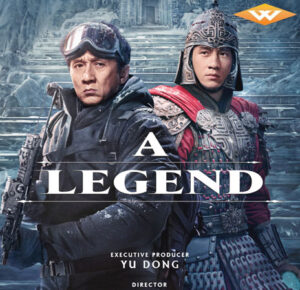


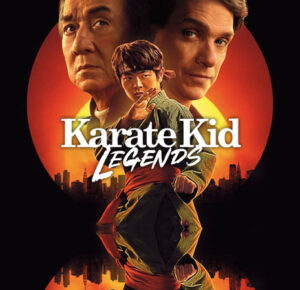
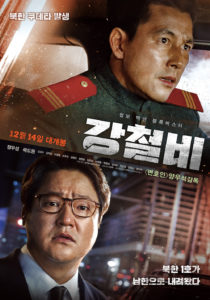
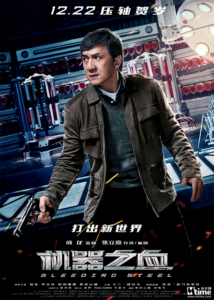
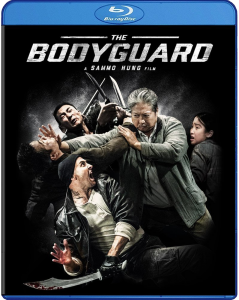
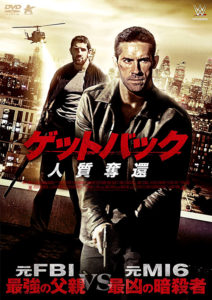


 Today’s Deal on Fire is the
Today’s Deal on Fire is the 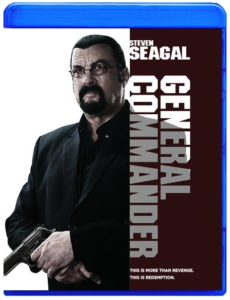



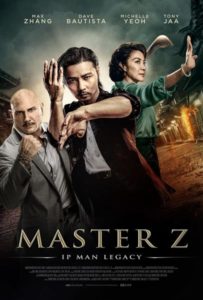

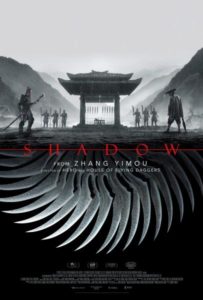
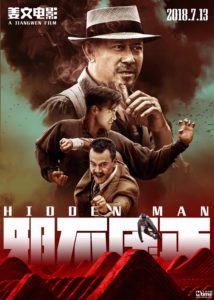



5 Comments